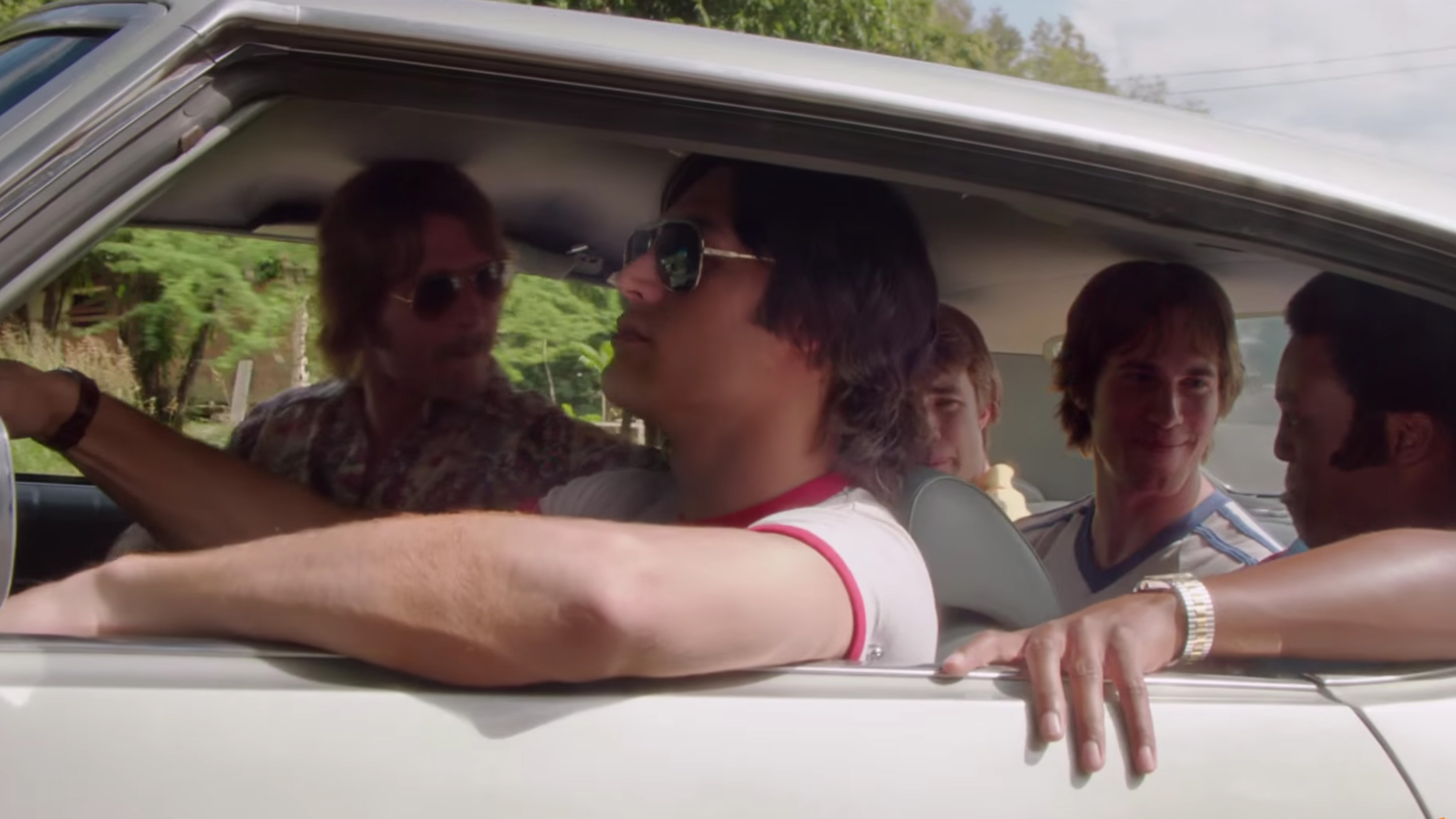By this point, if you’ve heard anything at all about Everybody Wants Some!!, you’ve heard it referred to as the “spiritual sequel” to Dazed and Confused. That isn’t inaccurate. Dazed was set on the last day of high school in the late ’70s and EWS takes place the weekend before college begins in the early ’80s. Both were written and directed by Richard Linklater, take place in Texas, feature ensemble casts (though you won’t see any shared characters), and are fueled by a teens-will-be-teens sense of fun and harmless debauchery.
But EWS offers an introspection and depth that makes it feel equally akin to Boyhood, the 2014 coming-of-age drama also written and directed by Linklater. That’s not to say the film is somber—it’s likely the most fun you’ll have in a theater all year—but EWS feels more mature than Dazed, and as a result, heavier.
As college freshman and all-star pitcher Jake (Glee’s Blake Jenner) arrives at the frat-style housing he’ll be sharing with the rest of his school’s baseball team, a countdown appears in the lower right corner of the screen. It indicates four days and a few odd hours before the start of classes, a harbinger of the end of fun before we even get to see that fun onscreen.
Throughout the movie, the countdown reappears, marking the days, hours, and minutes until classes begin, a reminder that the exhilarating freedom of college will soon be tempered with the inevitable responsibility of adulthood. But classes haven’t started yet, and Jake and his teammates spend their four remaining days of freedom as any respectable characters in an ’80s college comedy would: partying and trying to get laid.
Everybody Wants Some!! feels more mature than Dazed and Confused, and as a result, heavier.
But despite its setting, EWS isn’t quite an ’80s college comedy. Linklater, a master of understatement, manages to wink at the tropes of the genre without wallowing in them. The film adopts the male gaze perspective typical of the era, but the obligatory shots of co-eds in tight shorts and low cut tops expose Jake and his teammates far more than they do butts or breasts.
You won’t find a more charismatic group than the relative unknowns who populate EWS, and their chemistry as an ensemble is a remarkable feat of casting. But the boys, seemingly so confident in their identities, are constantly willing to shed and adopt new personas in pursuit of sex. Jocks by day, they throw on polyester shirts at night and head for a disco club. When they’re kicked out of the disco, they throw on cowboy hats and go line dancing. They cut the sleeves off of their shirts to fit in at a punk show and feign an interest in improv when they’re invited to a theater party.
There is no scene the boys can’t infiltrate. They are perfect chameleons because despite their confidence and swagger, they don’t yet know who they are. And they don’t actually know what to do with all that freedom. FL









